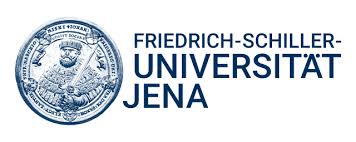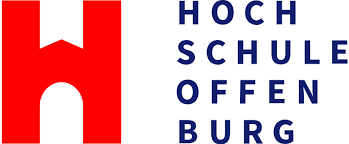You’re using the old Program Database. The new StudyBuddy Database is live with updated courses and a wishlist to save your programs.
Step 1 - Find your Study Program

Friedrich Schiller University Jena
Jena
Physics
Subjects: Physics
M.Sc. | Master of Science
Course description
In this study program, students gain advanced knowledge in both experimental and theoretical Physics. The M.Sc. Physics curriculum includes a few compulsory modules but primarily allows students to specialize in one of four areas: Optics & Photonics, Gravitation & Quantum Theory, Astronomy & Astrophysics, or Solid-State Physics and Material Science. The master’s thesis will focus on the chosen area of specialization. Numerous partnerships with external institutions provide a wide range of topics and foster strong connections with local and regional industries. To ensure a comprehensive education, students will also take several modules outside their specialization. This approach guarantees a well-rounded qualification, preparing graduates for diverse career opportunities.
Program Information
| Study Location | Jena |
| Start Semester | Summer, Winter |
| Study Form | Full-time |
| Study Type | Postgraduate |
| Teaching Language | English |
| Dual | No |
| Remote | No |
| Application Fee non-EU | No information |
| Study Length | 4 Semesters |
| Tuition Fees per Semester | No Tuition Fee |
| Cost per Semester | 273 EUR |
Step 2 - Check Application Requirements
Application Requirements
Language Requirements
| CEFR | No information |
| IELTS | No information |
| Cambridge (CAE) | No information |
| TOEFL IBT | No information |
This master's programme requires the following language proficiency: International applicants: excellent English language proficiency at level C1 (Common European Framework of Reference for Languages/CEFR) | OR | German language proficiency at minimum level DSH-2 (or a recognised equivalent)
Qualification Requirements
For this master's programme you need a subject-specific bachelor degree (minimum 6 semesters/180 ECTS-Credits) or a recognised equivalent. The curriculum of this degree should contain at least: 32 credits (ECTS) in basic subjects of mathematics, 32 credits (ECTS) in experimental physics, 32 credits (ECTS) in theoretical physics and 24 credits (ECTS) obtained from internships/practicals in physics.
Document Requirements
CV Motivation letter University entrance qualification certificate Previous university degrees earned Detailed transcript of records Proof of relevant work experience Proof of subject-specific practical experience
Application Process
| Acceptance Interview | No |
| Acceptance local admission restrictions | Not restricted |
| Application | directly at the University |
Step 3 - Get studying insights
Your Free StudyBuddy Checklist
Making your move to Germany easy
-
Simplified step-by-step Checklist
-
Track progress and complete tasks on the go
-
Direct access to webinars and resources
-1.png?width=1179&height=1764&name=image%20(6)-1.png)

Free Live Webinar
How to Study in Germany for Free
Get ready to study in Germany!
February 26th, 2026
-
Learn how to find your ideal program
-
Step-by-step application guide
-
Tips and tricks to get admission
Step 4 – Apply for a Visa

German Visa Guide
Your tailored German visa application guide
Be Prepared for Your Visa Appointment
Value Package
-
GERMAN BLOCKED ACCOUNT
-
Accepted by all German authorities
-
Instant blocked amount confirmation once funds are received
-
TRAVEL HEALTH INSURANCE / INCOMING INSURANCE
-
Free coverage worth up to €953. Mandatory for your visa
-
GERMAN HEALTH INSURANCE
-
Award-winning, affordable cover for visa, university, and life in Germany4
-
Up to €90 cashback with your personalized insurance2
-
FREE GERMAN BANK ACCOUNT
-
Instant access to monthly payouts + automatically connected to your Blocked Account
-
Free digital bank card ready to use worldwide. Apple + Google Pay.
-
ADDITIONAL FREE BENEFITS
-
Free International Student ID Card (digital) with thousands of discounts1
-
In-app accommodation access
-
COST BREAKDOWN
-
Monthly fee: Only €5
-
Blocked Account set-up fee: €89








